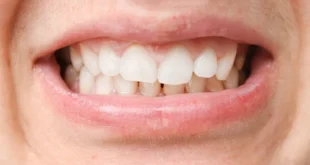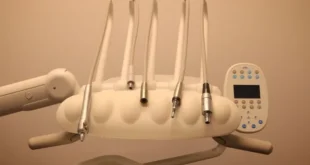
Let’s explore the process, benefits, and what to expect before, during, and after surgery the extracting wisdom tooth.
Why Extract Wisdom Teeth?
Wisdom teeth, also known as third molars, often need to be removed due to various reasons:
- Lack of Space: The jaw may not have enough room to accommodate the additional teeth, leading to impaction or crowding.
- Risk of Infection or Decay: Due to their position at the back of the mouth, wisdom teeth can be challenging to clean properly, increasing the likelihood of bacterial buildup, cavities, and gum disease.
- Potential Damage: Impacted or misaligned wisdom teeth can exert pressure on adjacent teeth, causing them to shift out of alignment or damage nearby structures like nerves and jawbone.
Benefits of Extraction:
Removing problematic wisdom teeth can:
- Alleviate Pain and Discomfort: Wisdom teeth often emerge partially or at awkward angles, causing pain, swelling, and discomfort in the gums and jaw.
- Prevent Oral Health Issues: By eliminating the risk of infection, decay, and gum disease associated with impacted wisdom teeth, extraction promotes better oral hygiene and reduces the likelihood of future dental problems.
- Improve Dental Alignment: Extracting misaligned or impacted wisdom teeth can prevent crowding and misalignment of neighboring teeth, preserving the integrity of your smile and bite function.
- Reduce Risk of Complications: Removing problematic wisdom teeth early can prevent more significant dental issues later in life, such as cysts, tumors, and infections.
Before the Surgery:
Preparing for wisdom tooth extraction involves:
- Comprehensive Evaluation: Your dentist or oral surgeon will conduct a thorough examination, including X-rays, to assess the position, size, and condition of your wisdom teeth and evaluate the surrounding structures.
- Discussion of Procedure: You’ll discuss the specifics of the surgery, including anesthesia options, anticipated outcomes, and any potential risks or complications.
- Pre-operative Instructions: Your dental provider will provide detailed instructions on pre-operative care, including dietary restrictions, medication adjustments, and preparation for anesthesia.
During the Surgery (Extracting wisdom tooth):
Wisdom tooth extraction typically follows these steps:
- Anesthesia Administration: Your dentist will administer local anesthesia, sedation, or general anesthesia, depending on your comfort level and the complexity of the procedure.
- Tooth Removal: Using specialized instruments, the dentist will make an incision in the gum tissue to access the tooth and gently remove it from its socket.
- Closure: If necessary, the surgical site will be sutured to facilitate healing and prevent excessive bleeding.
What to Expect After the Surgery:
Following wisdom tooth extraction, you may experience:
- Swelling: Mild to moderate swelling of the face and gums is common and typically peaks within 24 to 48 hours after surgery.
- Discomfort: You may experience pain, tenderness, or soreness in the extraction site, which can be managed with prescribed or over-the-counter pain medication.
- Bleeding: Some bleeding or oozing from the surgical site is normal during the initial healing period.
- Dietary Restrictions: You’ll need to stick to a soft or liquid diet for the first few days after surgery to avoid irritating the extraction site.
Risks Associated:
While wisdom tooth extraction is generally safe, there are some potential risks and complications, including:
- Infection: Bacterial infection at the surgical site can cause swelling, pain, and fever.
- Dry Socket: Inadequate blood clot formation in the extraction socket can lead to intense pain and delayed healing.
- Nerve Damage: In rare cases, nearby nerves may sustain damage during surgery, resulting in numbness or tingling in the lips, tongue, or chin.
- Sinus Problems: Extraction of upper wisdom teeth can sometimes lead to communication between the oral cavity and the sinus cavity, causing sinus congestion, pain, or infection.
Considerations About Anesthesia:
Your dentist or oral surgeon will discuss anesthesia options based on factors such as your medical history, anxiety level, and the complexity of the procedure. Options may include:
- Local Anesthesia: Numbing medication injected near the extraction site to block pain signals.
- Sedation: Medications administered intravenously to induce relaxation and reduce anxiety during the procedure.
- General Anesthesia: Inhalation or intravenous medications that render you unconscious and unaware during surgery.
Extracting wisdom tooth, is often necessary to prevent oral health problems and improve overall dental well-being. By understanding the process, benefits, and potential risks associated with the surgery, you can make informed decisions and ensure a smooth recovery. If you have any concerns or questions about wisdom tooth extraction, don’t hesitate to consult your dentist or oral surgeon for personalized guidance and care.
 Latinos en Alberta Directorio de negocios en Alberta
Latinos en Alberta Directorio de negocios en Alberta





